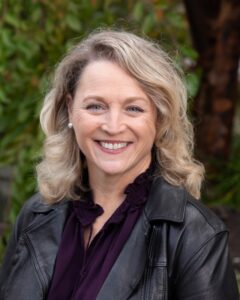WES IS STILL ACCEPTING APPLICATIONS FOR THE 2025-2026 SCHOOL YEAR IN A FEW GRADES. CONTACT THE ADMISSION OFFICE (admissions@w-e-s.org) WITH INTEREST.

 Thoughtful and rigorous academic classes led by master teachers are the core of our Middle School program. Our dedicated faculty members are integral to the culture of academic and personal excellence within our Middle School community.
Thoughtful and rigorous academic classes led by master teachers are the core of our Middle School program. Our dedicated faculty members are integral to the culture of academic and personal excellence within our Middle School community.
Our Advisory program establishes a group of peers and an advisor for every child. Students ask questions as well as give insights, listen to speakers and performances, all of which provide deeper context for their perceptions of self as well as others.
WES Middle School students also enjoy the chance to explore the world together, from fall team-building trips to our treasured spring study trips to Utah, Italy, Spain, and France. These shared experiences enrich their classroom learning but with the added benefit of collaboration and the joy of being together.
Finally, we work with each family to guide a high school search and application process that is tailored to each student. We are proud of our students’ success in the best high schools, showing an ability to delight in their world and stride confidently into it.
Kristin Cuddihy, Middle School Director
In our practical Ethical Course, students delve into moral and ethical decision-making, examining how their communities, relationships, and personal experiences shape their values. They explore the real-world impact of their decisions and actions on others through literature, film, and current events.
By Grade 8, the focus shifts to ethical leadership, culminating in a capstone project where students study a prominent figure in world history, deepening their understanding of ethical principles and leadership.
At WES Middle School, students in grades 6 through 8 are grouped with a consistent set of peers and a faculty advisor for weekly meetings. The advisor, who fosters strong bonds within the group and implements community outreach activities, provides academic and social-emotional support.
They also establish a personal and accessible relationship with each student’s family, monitor academic progress, and help set challenging yet achievable goals.
The WES Advisory Program creates a safe environment for social growth, builds a community of learners, and ensures that students are known and supported across the Middle School.
At WES, our philosophy for middle school trips emphasizes hands-on experiences that enhance learning, personal growth, and community development. These trips, whether short excursions around the DC metro area or extended journeys across the US and Europe, provide students with unique study opportunities each year. These first-hand experiences stimulate curiosity and deeper exploration and play a critical role in their development as communities of friends and as maturing young adults.
Each trip is closely tied to WES curricula and values, reinforcing classroom learning and fostering strong student bonds. Starting in fifth grade with visits to Civil War sites and progressing through eighth grade with trips to the Desert Southwest and overseas tours of Italy, France, or Spain, each journey builds on the last, exponentially enriching our student’s educational journey and preparing them for a globally connected future.
At WES, students have various leadership opportunities, including participation in the Student Government Association. Here, students can run for representative positions, allowing them to propose ideas for fundraisers, plan the school dance, and engage in service learning events.
This involvement not only fosters leadership skills but also encourages active participation in school activities and community service, contributing to their overall development as responsible and engaged young adults.
At WES, our Middle School arts program is designed to empower students with confidence and creativity.
In Grade 6, every student participates in a musical, fostering a cooperative ensemble spirit and the confidence to perform on stage. By Grade 8, students delve into Shakespeare, studying his works and performing “A Midsummer Night’s Dream” to understand iambic pentameter, operative words, and the emotional depth of his literature.
Grade 7 music students choose between Chorus and Band as their performing arts elective, and students from Grades 4-8 present two concerts annually, one at Christmas and one in spring. Additionally, those with strong musical affinity can join specialized groups like the A Cappella Ensemble, the Band Ambassadors, and our jazz-rich Jam Band, further honing their skills and showcasing their talents.
WES Middle Schoolers thrive in a learning community through study, activity, travel, and play!

"One of my favorite things about WES, having been through the public school system for many years, is the truly incredible sense of community - everyone knows each other personally, even the teachers."
— Grade 8 Student